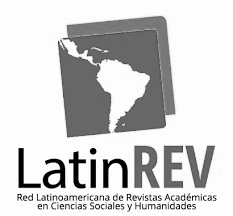El objetivo de este artículo es analizar cómo el cambio de autoridades en la Subsecretaría de Agricultura Familiar y Desarrollo Rural durante el periodo 2012 – 2015 incidió en la dinámica intraburocrática de la Delegación de la Subsecretaría en la provincia de Chaco. Para ello, se analiza la orientación política de los nuevos funcionarios en relación a la promoción de ciertos formatos organizativos y formas de trabajo territorial con las organizaciones del sector agrario subalterno. Esto se contrasta con la orientación política y el trabajo de los altos funcionarios y técnicos que han trabajado en la Delegación desde la década del 90 en el Programa Social Agropecuario. Por ello, el título del artículo sugiere que hay una disputa por la “institucionalización” de las políticas de desarrollo rural y agricultura familiar, pues esta tiene diferentes significados según el actor y el contexto donde se inserte. Se utilizó una estrategia metodológica cualitativa que consistió en la realización de entrevistas en profundidad a una decena de funcionarios y técnicos, así como la observación participante y el acompañamiento de sus actividades laborales y militantes durante el periodo 2013-2016.
Palabras clave: técnicos de terreno, burocracia, trabajo político, políticas de desarrollo rural y agricultura familiar
The dispute over the institutionalization of family farming and rural development policies in the province of Chaco
The objective of this article is to analyze how the change of authorities of the Subsecretaría de Agricultura Familiar y Desarrollo Rural (government agency dedicated to promote family farming and rural development practices) during the period 2012-2015, affected the intrabureaucratic dynamics of the Delegation (of the Subsecretaría) in the province of Chaco. Therefore, the political orientation of the new government agents is analyzed in relation to the promotion of certain organizational formats and forms of territorial work with the rural and agrarian subaltern organizations. This contrasts with the political orientation and the work of the senior officials and technicians who have worked in the Delegation since the 1990s in thePrograma Social Agropecuario. Therefore, the title of the article suggests that there is a dispute over the "institutionalization" of rural development and family farming policies, since this has different meanings depending on the actor and the context in which it is inserted. To do this, a qualitative methodological strategy was used that consisted of conducting in-depth interviews with a dozen field technicians and officials, as well as participant observation of their managerial and militant activities during the period 2013-2016.
Keywords: field technicians, bureaucracy, political work, rural development policies and family farming


